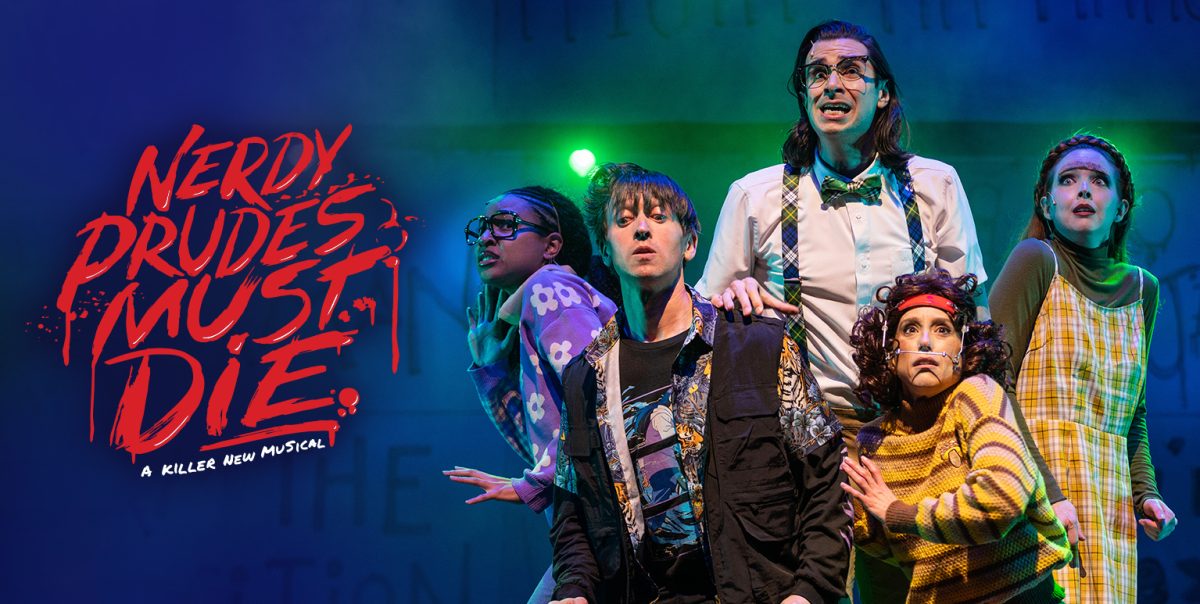
Another comedy about New York, eh? You might wonder how anything new can be done about the Big Apple. Between “Seinfeld,” “30 Rock,” “Broad City” and innumerable others, you’d think it’s all been said and done.
That’s why Netflix’s “Unbreakable Kimmy Schmidt,” which was co-created by “30 Rock” genius Tina Fey, stuck out so much to me. Starring Ellie Kemper (“The Office”), “Kimmy” feels surprisingly fresh. It’s an innocent, endearing novelty in a television era built by shock factor, in a world of heroes bent on breaking bad.
Kimmy Schmidt begins the series in an underground apocalyptic cult run by Reverend Richard Wayne Gary Wayne (Jon Hamm), who holds her and three other woman hostages for fifteen years. When rescued, she becomes something of a celebrity around rural Indiana. To escape infamy as one of the “Mole Women,” she stays behind in New York after an interview on NBC’s “Today Show.”
The show is a double-shot of espresso from the get-go. We cut from the underground bunker to a viral auto tune of reactionary news clips to Ellie on a talk show. The script, co-written by Fey and other creator Robert Carlock, never lets Ellie find her footing.
Her baptism by fire to the big city slings laugh after laugh, while her genuine excitement at riding the subway practically draws the smile on your face. Kemper is perfect for the starring role. Only her saccharine yellow and pink outshine her personality, leaping off the screen like her ear-to-ear grin.
“Kimmy” avoids the cavity-inducing sweetness far better than other quirky shows, like “New Girl,” which tends to polarize audiences with its overdoses of cutesy dialogue and behavior. “Kimmy,” on the other hand, delivers its helpings of quirkiness so they’re more nostalgic than nauseating. Kimmy’s expressions come from innocence and wonder rather than cutesiness. It often reminded me of childhood rather than of juvenile silliness. Watching her, I could feel only nostalgic for those younger, adventurous days of youth.
Most of her lines are so quick you’ll miss them the first viewing. She exclaims, “Urethra!” instead of “Eureka!” and elicits more giggles than other more serious comedies. It’s not precisely quotable, the way “Arrested Development” is. “Kimmy,” subtler than outright comedy, belongs more in the halls of “30 Rock” and “Better Off Ted.”
I can’t think of anyone more perfect for the leading role than Kemper. She’s already proven her charming comedic chops on “The Office” as Erin Hannon. Given the leading role this time, she sets the bar for the rest of the cast. Every line, no matter how innocent or silly, lands the punch line with Kemper’s unbridled enthusiasm.
In fact, one of “Kimmy’s” most appealing qualities is its agelessness. I thought at times that it could’ve easily been targeted at a far younger audience than other Netflix originals. Barring the occasional absurd jokes, which often slide by without notice (“I’ve gotten botulism a bunch of times from spoiled canned goods, so I know lots of ways to make people throw up”), the dialogue remains largely PG.
Jane Krakowski is great as Jacqueline Voorhees, a reincarnation of Jenna Maroney from “30 Rock,” who suffers from the gentrification syndrome striking New York. She laments her afternoon bedtime as if it’s a great affliction soon after hiring Kimmy as a babysitter. As “30 Rock” proved, no one can play a benign megalomaniac as Krakowski can. Whereas Jenna was a fading starlet staring down the loss of autonomy on “The Girlie Show,” Jacqueline is a rich housewife struggling to maintain relevance in the lives of her traveling husband, antagonistic stepdaughter and kleptomaniac son.
The role would be bland if not for Krakowski’s portrayal. Her expression says it all when Kimmy excitedly tells Jacqueline that she looks like a million bucks. Clutching her heart, Jacqueline sighs, “Wow. I know you didn’t mean for that to be hurtful, but…” before leaving the frame in a wistful sulk. Like her cast mate Kemper, Krakowski nails every joke that Fey and Carlock throw her way.
Tituss Burgess, who had a gem of a bit part in “30 Rock” as D’Fwan, rounds out the main cast as Titus Andromedon, a failed actor who struggles to pay the rent. Often the focus of a complimentary plot to Kimmy’s, Titus keeps the episodes steaming along. Ostensibly Kimmy’s experienced and disillusioned counterpoint, Titus maintains a similarly endearing sense of innocence and playfulness.
One thing I noticed while viewing “Kimmy” was that it’s Netflix first original that’s not exactly binge-worthy. Its contemporaries, “House of Cards,” “Orange is the New Black” and “Peaky Blinders” manage to end each episode with a punch that begs you to bow down to the “next episode” button. “Kimmy,” on the other hand, lacks the compulsive draw of Netflix’s other entertainment.
Then again, I can’t think of many comedies that I’d classify as binge-worthy. Whereas dramas demand deep emotional investment, comedies like “Kimmy” ask for only a twenty-minute respite from daily life. Taken in that context, “Kimmy” fulfills its purpose well.
At the end of each episode, it’s Kemper who shines brightest in the show. She bounds through her New York odyssey with such gusto you can’t help but tag along. The energetic supporting cast and hilarious scripts compliment her performance.
“Kimmy” won’t tie you to the blue light on your computer as much as other shows, but it’ll take you back to a day when comedies gazed at the world with a little wonder in their eyes.
Alexander Frail can be reached at [email protected] and followed on Twitter @AlexanderFrail.


















